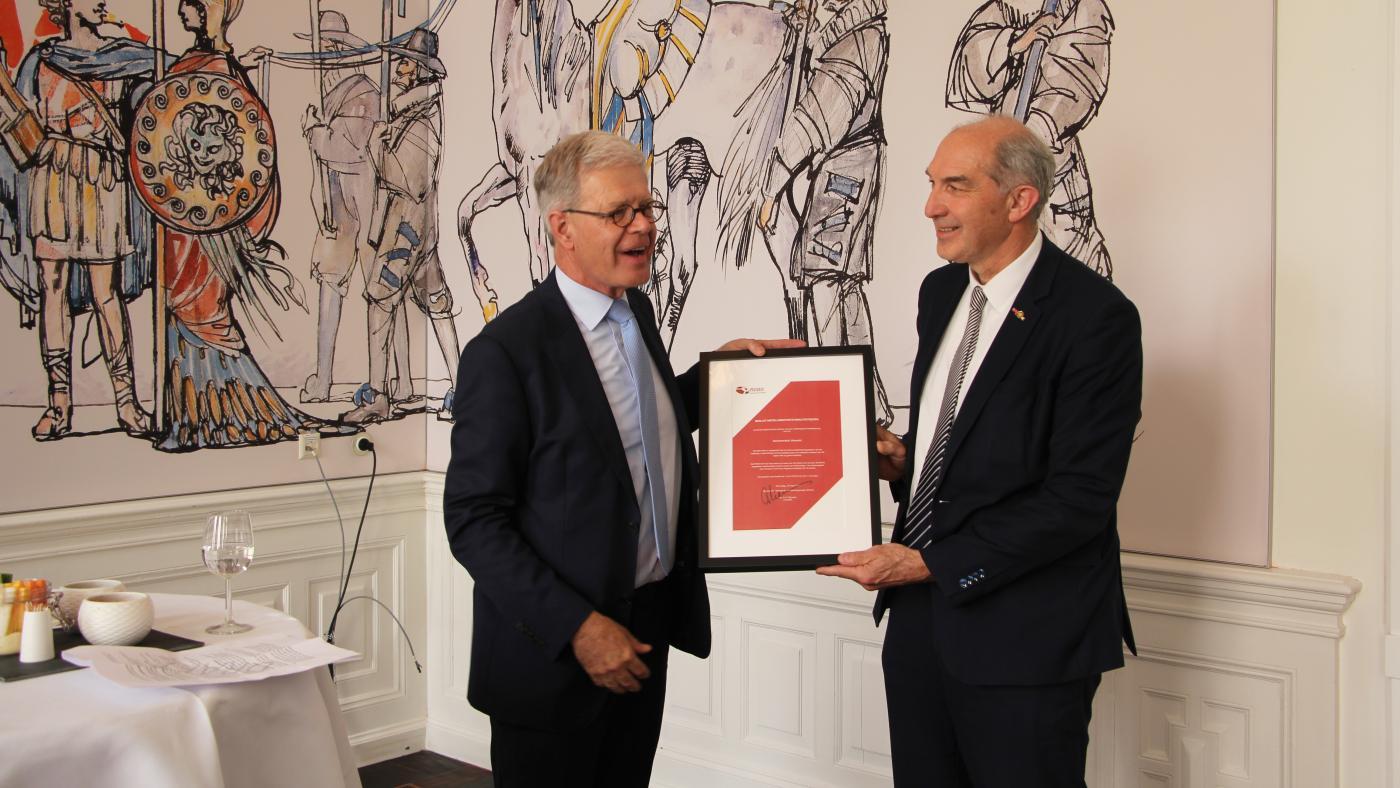Institutional accreditation scrapped
Minister does not want revolution in higher education assessment

The government keeps an eye on university and college programmes, and if it were up to the minister, that would not change. In fact, he is considering whether interim checks should be introduced if a programme is in trouble.
Every six years, a panel of experts assesses whether individual programmes are of sufficient quality. This panel reports to the NVAO quality assurance agency. If everything is in order, this agency “accredits” the programme for another six years.
Sometimes certain things need to be improved, and then a programme is given a recovery period. It is rare for a programme to actually have to close its doors. This system has been the subject of much criticism for years: all programmes have to jump through the same hoops, and critics say that expert panels mainly see a paper reality.
No need
Civil servants, universities and colleges have been working on a new form of quality control for some time: institutional accreditation. The idea was that educational institutions would assess their own programmes, and the NVAO would only check whether the institutions were doing so properly. In short, programme accreditation would disappear and be replaced by institutional accreditation.
But outgoing Minister of Education Eppo Bruins is not in favour of this. He does not see the need for a major system change and his civil servants have other things to do, he writes to the House of Representatives.
In recent years, there have been calls within his own party, the NSC, to tighten supervision of programmes. Founder Pieter Omtzigt argued for random checks on programmes to measure quality. Former Minister Robbert Dijkgraaf was not in favour of this, but his successor Eppo Bruins is now reviving the idea.
In a written consultation with the House of Representatives, Bruins states that a renewed accreditation system ‘could also include risk-based elements, such as spot checks’. How and what exactly is not specified.
'Ownership'
The plan for institutional accreditation had many loose ends. For example, it was never made clear what would happen if an institution failed to obtain accreditation. Would all of an institution's individual programmes then have to be rushed through the accreditation process? That would be a huge undertaking. That in itself was reason for criticism: would the inspectors dare to give an institution a failing grade if the consequences were so serious?
Institutional accreditation stems from a sympathetic idea: place the responsibility with the people who determine the quality of a programme: the lecturers. They should be given more “ownership” and become in charge of the accreditation process. The proponents of the plan hoped that this would make them more intrinsically motivated during the accreditation process to show what is going well and what is going wrong in their programmes.
But it is not that simple, because an assessment must still be carried out according to certain rules. Whether those rules come from the NVAO or from the board of your institution may not matter much to teachers.
Paperwork
Bruins estimates that the paperwork will not decrease in a new system. Not least because politicians regularly call for stricter rules.
A good example of this is a request from the House of Representatives in 2023. Members of parliament saw in the press that the law school of Fontys and Avans had botched an educational reform. The House collectively condemned this and demanded that the minister draw up a new protocol for programmes that intend to reform their education. The House also passed a motion calling for additional accreditation rules in the case of educational reforms.
Two years later, Bruins has now responded to this unanimously adopted motion in his letter. He says he has talked to all kinds of groups, from students and teachers to universities and colleges, as well as the Education Inspectorate and the NVAO. And actually, no one is waiting for a new protocol or new accreditation rules, according to Bruins.
The minister suggests that political intervention should sometimes be feared rather than embraced, as he also emphasised in a recent interview. When problems come to light in the news, you will see that politicians will call for new rules despite institutional accreditation.
Supervisory gap
Minister Bruins is now looking for another way to identify signs of inadequate education. Because the problem is real, he writes. Programmes are assessed every six years, but there is a gap between those accreditations, ‘during which there is no external supervision of the quality of programmes.’ Bruins thus reiterates the conclusion of the Education Inspectorate earlier this year.
After an educational reform, it can take years before a programme is reviewed again. What if things go wrong in the meantime? Bruins wants to make it possible to review programmes more frequently in the interim. He is currently discussing this with various parties and wants to share his plans with Parliament sometime next year. That will be after the elections, so things could also turn out differently.